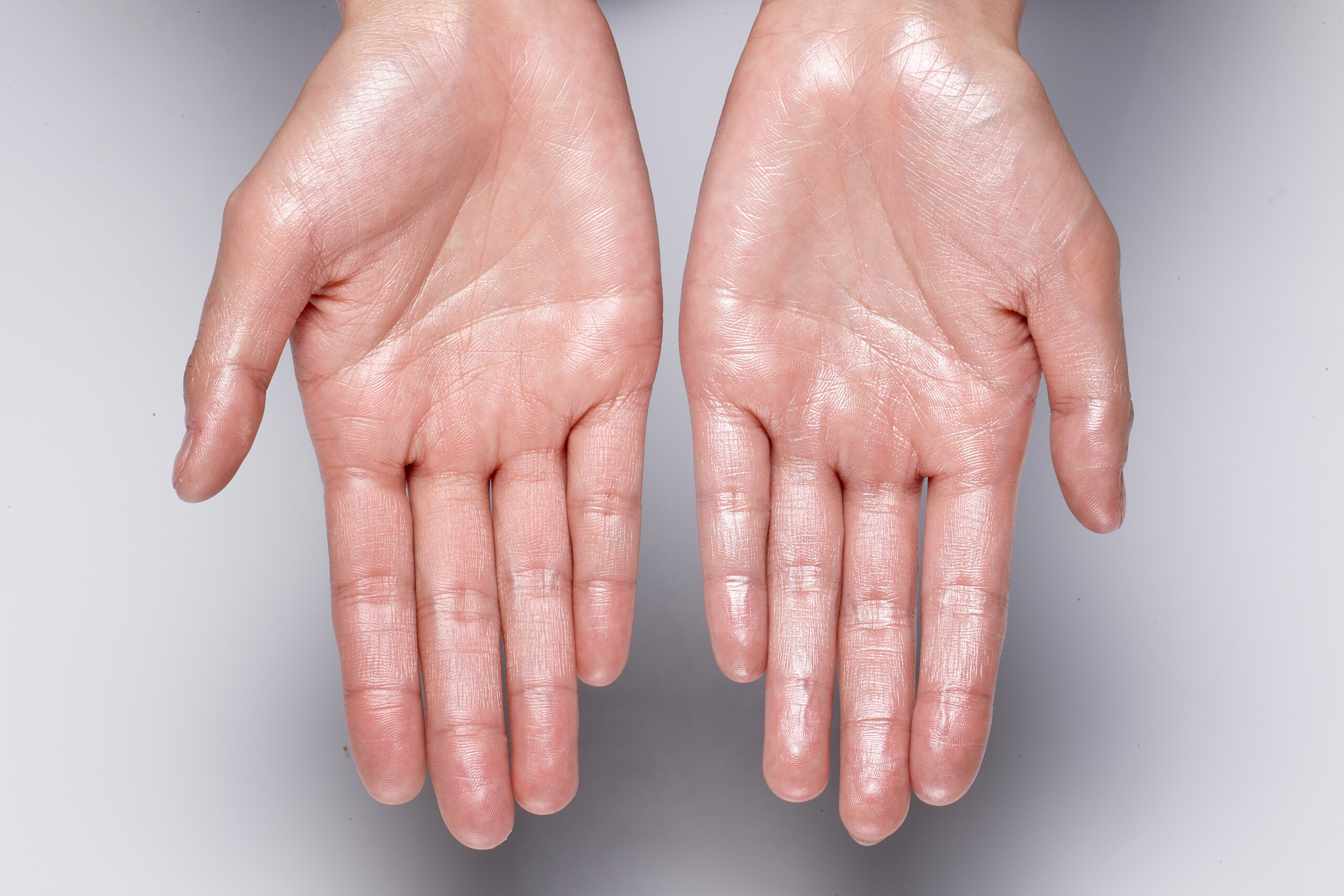How to Stop Sweaty Hands and Feet: Top Dermatology Treatments for Excessive Sweating
How to Stop Sweaty Hands and Feet: Top Dermatology Treatments for Excessive Sweating
Blog Article
Recognizing the Root Causes of Excessive Sweating and Its Influence on Daily Life
While it is typically understood as a physiological response to manage body temperature level, the triggers for excessive sweating can differ extensively among people, including not only physical variables yet mental and likewise psychological components. By delving into the origin causes of hyperhidrosis and exploring its diverse impacts, a much deeper understanding of this prevalent issue can be obtained, dropping light on the complexities that people grappling with extreme sweating navigate on an everyday basis.
Physiology of Sweat Glands
The policy of sweat manufacturing, a critical physical process, is mostly managed by the task of sweat glands dispersed across the human body. Gland are categorized into two main types: eccrine and apocrine glands. Eccrine glands are the most countless and are discovered in almost all locations of the body. They play an important duty in thermoregulation by secreting a watery liquid onto the skin's surface, which evaporates and aids cool the body down. On the other hand, apocrine glands are focused in areas abundant in hair follicles, such as the armpits and groin, and their secretions are thicker and milklike in appearance.
When the body temperature level rises, either because of exercise, heats, or psychological tension, the nerve system triggers the sweat glands to create sweat. This sweat is made up mainly of water and electrolytes like salt and chloride. The procedure of sweat production is necessary for keeping the body's internal temperature level within a slim, optimum range, highlighting the vital duty gland play in human physiology.
Triggers for Excessive Sweating
In understanding the source of too much sweating, it is crucial to identify the triggers that can result in this physiological reaction. Extreme sweating, likewise recognized as hyperhidrosis, can be motivated by various factors, both physiological and environmental. One common trigger is emotional tension or stress and anxiety, which can promote the body's sweat glands to produce more sweat than is required for cooling. Physical effort, heats, and spicy foods are likewise understood to activate extreme sweating in individuals susceptible to this condition. Specific medical conditions like hyperthyroidism, diabetes, or menopause can add to extreme sweating as well.
Additionally, medications such as some antidepressants, opioids, and particular supplements can likewise serve as triggers for hyperhidrosis. Recognizing these triggers is necessary in handling excessive sweating properly - How to stop sweaty hands. By recognizing and resolving the certain triggers that prompt extreme sweating in an individual, doctor can develop tailored therapy plans to reduce this problem and enhance the person's high quality of life
Medical Issue Associated
Related to too much sweating are various medical problems that can intensify this physical response. One common problem is hyperhidrosis, a problem characterized by unusually raised sweating that exceeds the body's thermoregulatory requirements. This can materialize in focal locations like the palms, soles, underarms, or face, impacting an individual's top quality of life as a result of social embarrassment and discomfort.
Additionally, endocrine conditions such as hyperthyroidism, diabetic issues, and menopausal hot flashes can likewise cause too much sweating. Hyperthyroidism triggers an overflow of thyroid hormonal agents, speeding up metabolic process and activating sweating. Diabetic issues can cause sweating episodes, especially during hypoglycemic episodes when blood sugar levels go down also reduced. Menopausal warm flashes, credited to hormonal fluctuations during menopause, can create abrupt and extreme sweating, usually come with by flushing and heart palpitations.
Additionally, infections like tuberculosis, HIV, and endocarditis have been connected with investigate this site evening sweats, a typical symptom known to interrupt sleep and affect overall health. These medical conditions highlight the varied series of underlying elements that can contribute to too much sweating, demanding thorough analysis and administration by health care professionals.
Psychological and Mental Factors

Effect on Social Communications
Extreme sweating can have extensive effects on a person's ability to engage pleasantly in social interactions. The noticeable signs of sweat spots or damp patches on garments can lead to humiliation and self-consciousness, creating individuals to take out from social scenarios. This withdrawal can impact connections, limit social activities, and impede individual and professional growth.
In addition, the anxiety and self-confidence problems originating from excessive sweating can affect communication and interpersonal skills. People might battle to concentrate on conversations, take part in group activities, or reveal themselves confidently. This can cause sensations of isolation and solitude, as social links end up being testing to preserve.
Final Thought

While it is generally recognized as a physical action to regulate body temperature, the triggers for too much sweating can differ commonly among people, incorporating not just physical aspects but mental and also emotional components. By delving right into the origin causes of hyperhidrosis and discovering its diverse effects, a much deeper understanding of this prevalent issue can be obtained, dropping light on the complexities that people grappling with extreme sweating browse on an everyday basis.
Physical exertion, high temperature levels, and spicy foods are also recognized to activate excessive sweating in people prone to this problem. By determining and addressing the certain triggers that trigger too much sweating in a private, medical care carriers can establish tailored his comment is here treatment strategies to minimize this problem and improve the person's quality of life.
Extreme sweating can have extensive impacts on a person's ability to involve comfortably in social interactions.
Report this page